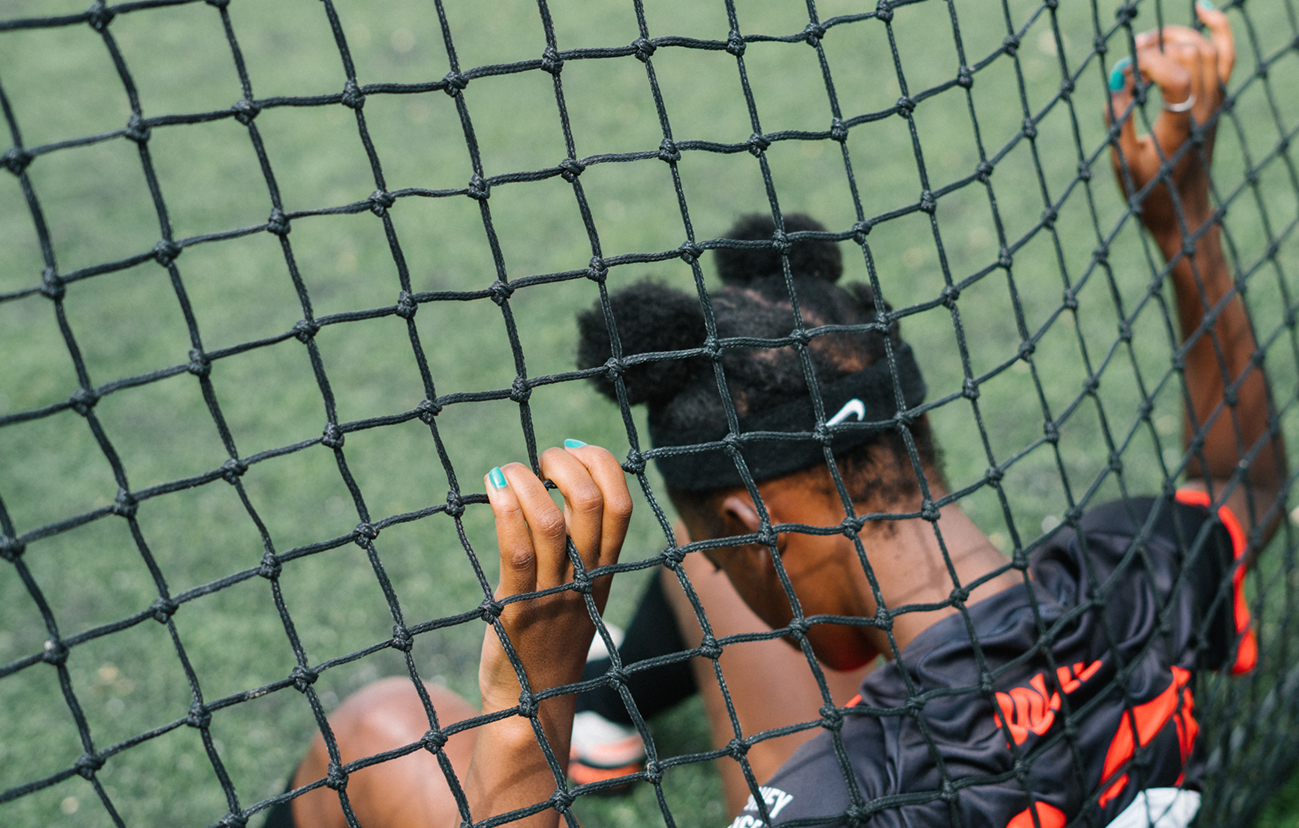The Inner Critic: Competitiveness and Self-Criticism

Published
Engaging in harsh self-criticism following a performance is a common reality for many athletes (Frentz et al., 2020). An important distinction to note is that while negative self-talk simply describes the general negative inner voice, self-criticism describes the negative self-evaluation after failing to meet a specific standard or expectation (Naragon-Gainey & Watson, 2012). This criticism may include focusing solely on mistakes, questioning one’s self-worth, and generalizing the lack of success to other life events. Unfortunately, it is also common for athletes to believe that harsh self-criticism is required to keep their competitive edge (Ferguson et al., 2015). However, before proposing an alternative way to respond - focused on compassion and kindness toward oneself - it is helpful to explore competitiveness as a construct and the reasons many athletes engage in excessive self-criticism.
What Is Competitiveness, and Why Is Self-Criticism the Standard?
While there are many definitions, competitiveness fundamentally describes the desire to succeed. Depending on the athlete and situation, competitiveness can mean beating your competition, while at other times, it can mean improving a skill. The competitive nature of sport challenges athletes to cope with adversity, losses, and failure. Many athletes believe meeting these demands requires self-criticism (Ferguson et al., 2015). In some cases, this type of self-criticism was present while reaching their current level of performance, with success then seen as resulting from listening to one’s own worst critic.
The question becomes, why fix something that has worked for a long time? Supported by the copious amount of energy poured into their sport, athletes frequently conclude perfection can be the only admirable outcome (Frentz et al., 2020). The novelty of being compassionate to performance decrements frequently feels not only uncomfortable to an athlete but also a significant risk. Therefore, continuing with old, seemingly "effective" habits of being self-critical allows athletes to find comfort. High self-criticism can become a never-ending cycle for athletes, which, while comforting due to its familiarity, may prevent them from reaching their full potential. Yet, athletes can learn how to respond with self-compassion instead of self-criticism to break this habitual cycle.
A Self-Compassionate Alternative: Being Present
In moments of self-criticism, athletes often think about what they should have done on the last play, what their teammates/coach will think of them, or even what will happen to their career if they do not improve their performance. While the self-critical thoughts of each athlete are unique and often personal, they tend to focus on the past (e.g., a previous mistake) or the future (e.g., unpleasant consequences of their performance; Hegarty & Huelsmann, 2020). This emphasis on the past and future deters an athlete's ability to be engaged in the present moment.
Most athletes play at their best when fully engaged in the present moment - one of the critical components of the flow experience (Csikszentmihalyi, 2009). Responding with compassion towards themselves, athletes are more likely to stay in the present moment and accept their mistakes while also understanding that mistakes do not define them (Neff, 2003). Instead of carrying the emotional heaviness of self-criticism, athletes can untangle themselves from their thoughts and see the situation for what it is, not what they wish it would be. Through self-compassion, athletes can explore their shortcomings with curiosity rather than judgment, allowing them to learn from their mistakes (Frentz et al., 2020). Even further, a compassionate response is a source of hope, a motivator to try one more time, and a source of resilience to face sport's inherent adversity.
A Self-Compassionate Alternative: Moving on From Mistakes
Responding with kindness also allows athletes to respond efficiently to mistakes (Frentz et al., 2020). The harsh self-criticism, commonly accompanying mistakes, results in negative emotions being associated with mistakes. It is, therefore, common for athletes to ruminate on fears of failing and anxieties about one’s performance. To avoid these unpleasant inner experiences, athletes may avoid new challenges or decrease their effort (Ryska et al., 1998). They can even use unrealistic expectations to make failure inevitable, creating certainty and avoiding the discomfort of giving their best and still not succeeding. In these moments, self-compassion and present-moment awareness allow athletes to acknowledge the discomfort of the present challenge without falling victim to the unproductive consequences of their self-critical thoughts (Frentz et al., 2020). Athletes can then embrace the challenge, meet adversity with motivation to succeed, and perform to their best ability – arguably, the epitome of competitiveness.
So, You Want to Be Competitive?
Ultimately, being self-compassionate can allow athletes to be more successful in a competitive environment (Frentz et al., 2020). Being competitive requires athletes to separate themselves from their performance outcomes. While the desire to improve is necessary for any sport and performance domain, harsh self-criticism can hardly be seen as a recipe for long-term success and enjoyment. To be truly competitive, ask yourself, Can I be competitive enough to do what best serves my performance, not what allows me to avoid emotional discomfort? Can I be competitive enough to be kind to myself instead of harshly criticizing myself? Can I be competitive enough to be patient as I learn to treat myself with kindness and compassion? For athletes beginning their journey to a more self-compassionate approach, we advise that they practice self-compassion in response to the perceived struggle and to their response to the adversity. Instead of being self-critical about one’s self-criticism, athletes may start by noticing those moments of self-criticism and mindfully accepting them without feeling the need to change them.
References
- Csikszentmihalyi, M. (2009). Flow: The psychology of optimal experience. Harper [and] Row.
- Ferguson, L. J., Kowalski, K. C., Mack, D. E., & Sabiston, C. M. (2015). Self-compassion and eudaimonic well-being during emotionally difficult times in sport. Journal of Happiness Studies, 16(5), 1263-1280.
- Frentz, D. M., McHugh, T. F., & Mosewich, A. D. (2020). Athletes’ experiences of shifting from self-critical to self-compassionate approaches within high-performance sport. Journal of Applied Sport Psychology, 32(6), 565-584.
- Hegarty, J., & Huelsmann, C. (2020). ACT in sport: Improve performance through mindfulness, acceptance, and commitment. Dark River.
- Naragon-Gainey, K., & Watson, D. (2012). Personality, structure. In Encyclopedia of Human Behavior (pp. 90–95). Elsevier.
- Neff, K. (2003). Self-compassion: An alternative conceptualization of a healthy attitude toward oneself. Self and Identity, 2(2), 85-101.
- Ryska, T. A., Yin, Z., & Cooley, D. (1998). Effects of trait and situational self-handicapping on competitive anxiety among athletes. Current Psychology, 17(1), 48–56.
Share this article:
Published in:






